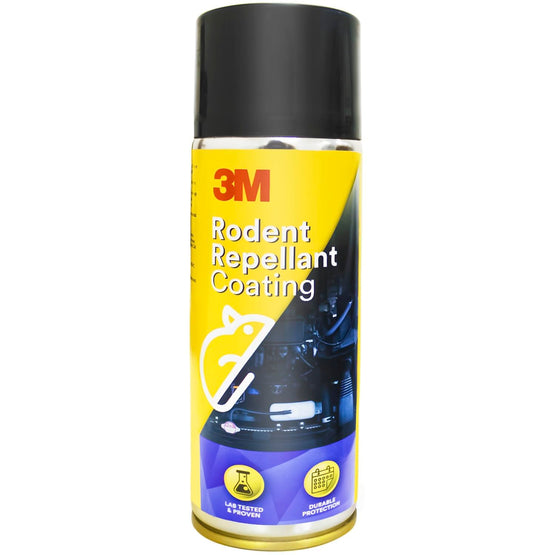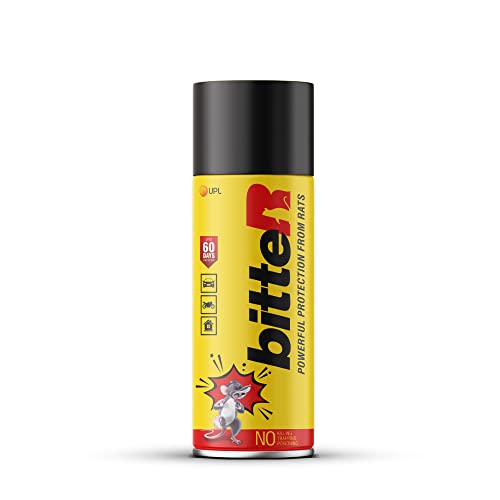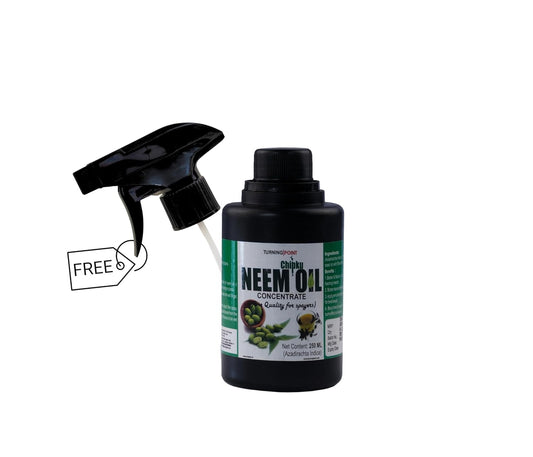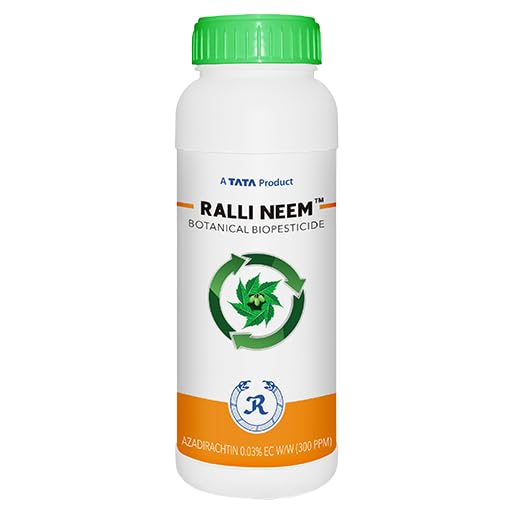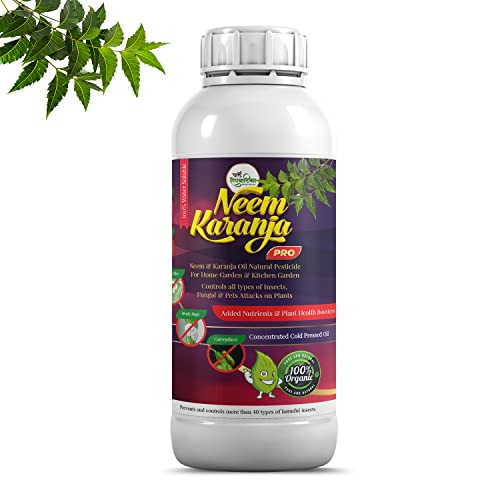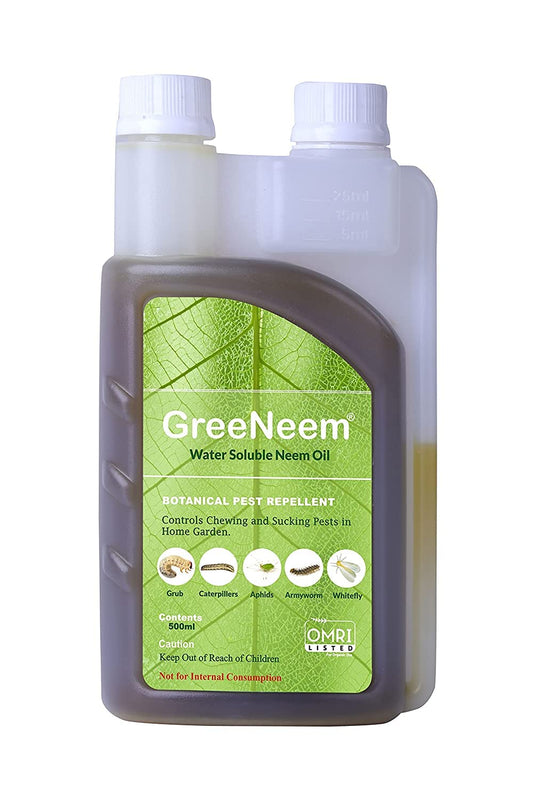Harnessing Nature's Arsenal: The Power of Natural Pesticides for Thriving Gardens
Share
In the age of organic farming and sustainable living, the use of natural pesticides has gained tremendous popularity among Indian gardeners. These eco-friendly alternatives not only safeguard our plants from the clutches of pests but also protect the environment and our health. Today, we delve into the world of natural pesticides, unveiling their secrets and benefits for common Indian households.
Neem Oil: Nature's Shield
Neem oil, derived from the seeds of the neem tree, stands as a formidable natural insecticide. Its effectiveness against a wide range of pests, from insects to mites and nematodes, makes it a gardener's best friend. At the heart of neem oil's power lies azadirachtin, a tetranortriterpenoid. Azadirachtin acts as an insect growth regulator, disrupting insect development by hindering molting hormone release. It also discourages insects from feasting on treated plants, acting as an antifeedant. Additional insecticidal compounds, such as salannin, nimbin, and nimbidin, further enhance neem oil's prowess.
Beyond pest control, neem oil boasts antioxidants that shield plants from free radical damage and plant growth regulators that boost overall plant health and vitality. As a relatively safe alternative to synthetic pesticides, neem-based solutions have gained popularity in organic farming practices across India.
Pyrethrum: Nature's Gentle Defender
Pyrethrum, extracted from chrysanthemum flowers, is a natural insecticide effective against a wide array of pests, including aphids, mosquitoes, and flies. Its non-toxic nature makes it a preferred choice for home gardens. Pyrethrins, the active ingredients in pyrethrum, work their magic on insects without posing significant risks to humans or the environment. Chlorogenic acid, found in chrysanthemums, adds to its appeal with antioxidant and anti-inflammatory properties.
Rotenone: The Potent Protector
Derived from the roots of the derris plant, rotenone is a potent insecticide, effective against beetles, caterpillars, and ants. Careful usage is crucial due to its relative toxicity. Rotenone's mode of action disrupts the electron transport chain in insects' mitochondria, leading to their demise. Deguelin, a less abundant compound in derris root extracts, shares similar insecticidal properties but with slightly lower toxicity.
Derris root extracts also contain tephrosin and loganin, adding to their insecticidal repertoire, albeit in smaller quantities.
Biological Pesticides: Nature's Precision Strike
Biological pesticides are crafted from living organisms like bacteria, fungi, or viruses. They exhibit remarkable specificity, targeting only the intended pests. Examples include Bacillus thuringiensis (Bt), a weapon against insect pests, and Metarhizium anisopliae, an nematode pest adversary.
Essential Oils: Aromatic Pest Repellents
Concentrated essential oils extracted from plants like peppermint and cinnamon exhibit insecticidal properties. They serve as the basis for natural insecticidal sprays and repellents, offering a fragrant solution to pest problems.
Natural pesticides are the eco-conscious gardener's secret weapon in the battle against garden pests. With options like neem oil, pyrethrum, rotenone, biological pesticides, and essential oils at your disposal, you can protect your plants while minimizing harm to the environment and health risks. Remember to choose the right pesticide for your specific needs, follow label instructions diligently, and watch your garden flourish under the gentle care of these natural defenders.
As we embrace natural pesticides in our gardens, we not only nurture our plants but also the planet. These eco-friendly alternatives allow us to cultivate beautiful and bountiful gardens while preserving the delicate balance of nature. So, go ahead and give them a try, and let your garden thrive the natural way. Happy gardening!










